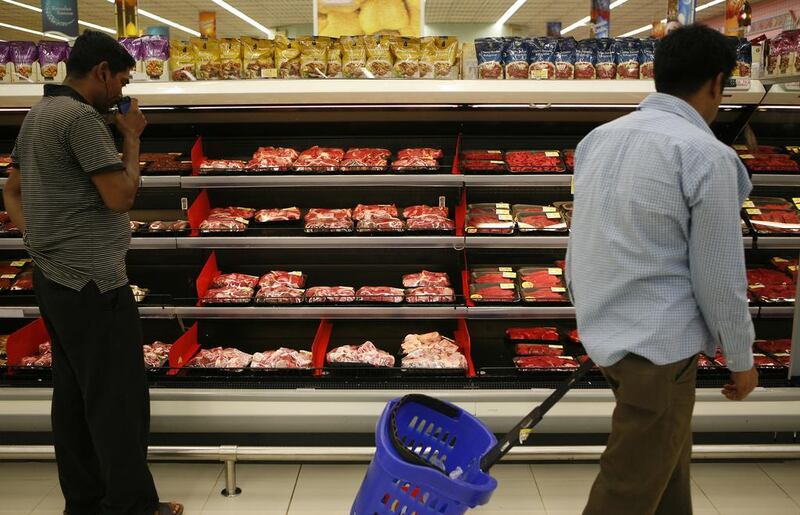UAE inflation edged up to its highest in more than five years last month as rising rents and food prices push up the cost of living.
The consumer price index rose to 2.2 per cent compared to the same period last year, up from 2 per cent in May, showed data from the National Bureau of Statistics. On a monthly basis, the index edged up by 0.4 per cent last month, compared to 0.2 per cent the previous month.
"It's the same inflation drivers for Dubai as it is for Abu Dhabi. Housing and food are having the biggest impact," said Alp Eke, the senior economist at National Bank of Abu Dhabi. "In terms of housing, the CPI is a sample of new and old rental contracts as a proportion of housing costs and it will become increasingly biased towards new rent in the coming months, so it is likely to push the CPI upwards."
The sharp acceleration in residential rents in Dubai and Abu Dhabi in the past year is gradually seeping through to inflation data. Housing and utility costs make up more than 39 per cent of consumer expenses. Last month, housing costs edged up 2.4 per cent from the year earlier and 0.1 per cent from the previous month.
Still, the rise has yet to capture the full extent of the rebound in property prices. Average rents in Dubai gained 24 per cent in the second quarter of the year, up from a 23 per cent rise in the previous quarter, according to a report released yesterday by the property consultant JLL.
In Abu Dhabi, rent rises have also quickened after the government in November removed a cap in the residential sector. Rents and utilities were the largest contributor to the annual rise in inflation of 3.8 per cent last month, data released on Saturday by Statistics Centre Abu Dhabi showed. It was the highest annual rise since November 2010.
In a research report released last week, Emirates NBD said it expected UAE CPI to continue trending higher in the second half of the year, leading to annual inflation of 3 per cent, its highest level since 2009.
Until this year, inflation had remained relatively muted since 2009 when a debt crisis and a global credit crunch deflated a property bubble. Inflation reached a peak of 10.8 per cent in 2008.
Food prices have also played a part in pushing prices higher. Food and soft drink prices were 1.7 per cent higher last month from the same period last year. They rose 0.7 per cent from the previous month, according to the bureau. The component accounts for about 14 per cent of the index’s weighting. Within Abu Dhabi, where they account for 16 per cent of the index, prices rose by 2.9 per cent on an annual basis.
Food prices should moderate this month after the Ministry of Economy rolled out annual price controls to guard against food price inflation during Ramadan.
Globally, food price pressures have also eased in recent months. The food price index of the Food and Agriculture Organisation of the United Nations was 1.8 per cent down last month from May, the third monthly decline in succession. The organisation said the dip was largely the result of a marked drop in cereal and vegetable oil prices after further improvements in global output prospects.
tarnold@thenational.ae
Follow The National's Business section on Twitter





